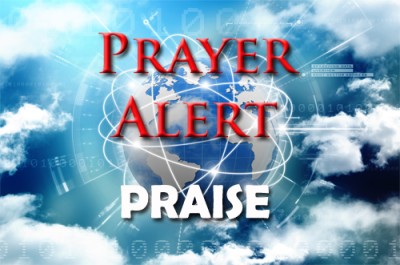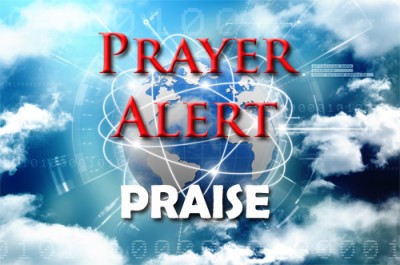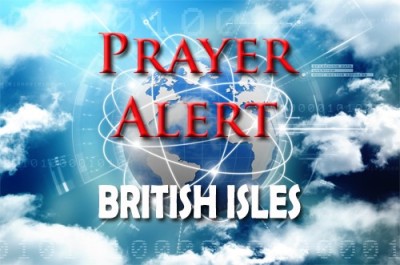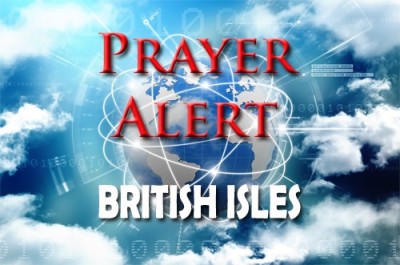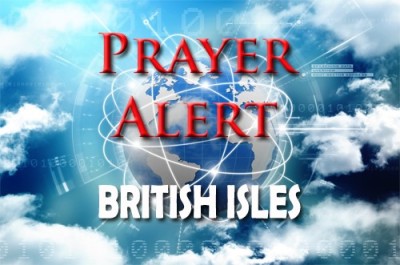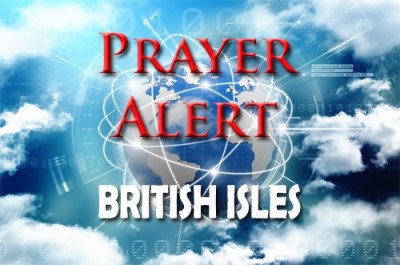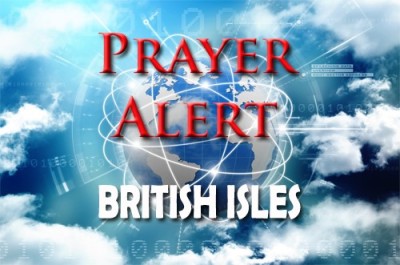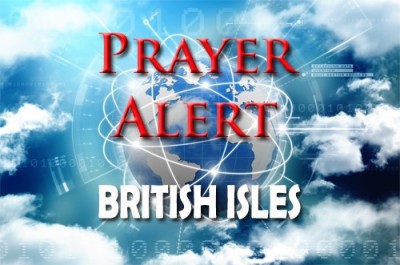Asbury fire of revival spreading
23 Feb 2023Last week we praised God for the revival fires burning at Asbury University, and now this outpouring of the Holy Spirit is spreading. CBN News reported that for days, people have been giving testimonies, reading scripture, worshipping God, and praying in the ongoing revival that began on 8 February. Four auditoriums on the campus are now filled with people. Graduates, pastors, seekers, and busloads of students from over 24 other universities began visiting Asbury, seeking God. The wave of revival fire shows no signs of stopping. Lee Christian University Campus caught the fire next. By 23 February reports were coming in from colleges and universities across the nation fully igniting into spontaneous worship, prayer, and repentance as the Holy Spirit continues to fill students' hearts and minds. Christian leaders are speaking about the timing and what it could mean for this point in history. Also this outpouring coincides with the national Collegiate Day of Prayer on 23 February.
South Dakota ‘help not harm’ act
23 Feb 2023South Dakota signed into law a bill that prohibits healthcare professionals from using drugs, hormones or surgery to alter the appearance of the sex of a minor. Under the Help Not Harm Act, healthcare professionals who violate the law will lose their professional licence or certificate. If they have already begun a course of treatment on a minor, that treatment must stop. If immediate termination of the treatment would harm the minor, the treatment may be ‘systematically reduced,’ and must end by 31 December 2023. The Institute for Research and Evaluation of Scientific Evidence stated, ‘Cross-sex medical treatments are not beneficial to children. There is evidence of harmful impact, and gender dysphoria in children usually goes away on its own by young adulthood, if “transition” is not encouraged. This avoids the harmful effects of such interventions.’
Products of slavery in the UK
23 Feb 2023We are approaching the celebrations of Easter, the resurrection of Christ. As we enter Lent we may choose to fast from chocolate, phones or coffee. Right now, people are being exploited to make these everyday products. Slavery is in the supply chains of everything - the clothes we wear, the coffee we drink, the technology we use and the chocolate we eat. Slavery has been linked to the supply chains of many everyday products and commodities. Nestle, Mars and Hershey all source cocoa from West Africa, where child labour and forced labour still persist. One in three workers in Malaysia’s electronics sector may work under conditions of forced labour. Coltan and other conflict minerals in electronics devices often come from forced labour in illegal mining whose profits support armed forces. Forced labour is big business, with profits around £125 billion. Please pray that UK businesses become increasingly aware of slavery in supply chains.
London’s free school meals
23 Feb 2023London's mayor Sadiq Khan is launching a £130m scheme in September to give every primary school pupil free school meals during the 2023-24 academic year. That’s 270,000 children, saving families £440 per child. Mr Khan, who received free school meals himself, said, ‘The cost of living crisis means families are in desperate need of additional support. I have repeatedly urged the government to provide free school meals to help already stretched families, but they have simply failed to act.’ Newham, Islington, Southwark and Tower Hamlets councils will also offer free school meals; last month Westminster City Council also began providing free school meals for primary pupils. Charities and teaching unions have welcomed the plans, but some have urged the Government to step up wider support. The Children's Food Campaign said healthy school food for all must not just be an emergency measure. It should be part of a fully inclusive education system for the long term.
SNP leadership candidates
23 Feb 2023Humza Yousaf and Kate Forbes are leading candidates to be the next first minister. Kate Forbes said she would not have backed the Scottish government's bill to make it easier to change gender legally. At the heart of her identity is membership of the socially conservative Free Church of Scotland. As a Christian she believes marriage to be between a man and a woman, but she insists she would defend the law as ‘a servant of democracy.’ Mr Yousaf describes himself as a proud Muslim who will be fasting during Ramadan, which falls in the final week of the leadership campaign. He said that he does not legislate on the basis of his faith, and he has a track record of supporting gender reform, gay marriage, and buffer zones around abortion clinics. Ms Forbes also does not legislate on the basis of her faith, favouring votes of conscience. See also
UK economy lagging behind others
23 Feb 2023The International Monetary Fund (IMF) predicts the UK economy will shrink this year while every other major economy will grow. The Bank of England also forecasts a 2023 recession - albeit shorter and less severe than previously forecast. Forecasts are never perfect. There are many factors affecting economic growth, from geopolitics to the weather. Predictions often miss the mark but can point in the right direction. UK's figures reflect the impact of closed schools, cancelled operations during Covid, as well as disruption due to strikes. The bigger picture, however, remains: the Bank of England and the IMF both expect the UK economy to shrink this year, while other G7 countries are expected to grow. There are ten million working-age people who aren't in a paid job. Nearly nine million of them aren't called ‘unemployed’ because they're not actively looking for work, or available to start a job. Instead they are called ‘economically inactive’.
Overcrowded specialist schools
23 Feb 2023Half of schools for children with special educational needs and disabilities are oversubscribed. Since 2019 children needing specialist education have increased by 1/3rd. Schools have converted portable cabins and even cupboards into teaching spaces due to lack of room, putting pressure on staff and making pupils anxious. Maltby Hilltop School is a specialist school for pupils aged two to 19 with severe learning difficulties and complex needs. Lack of space and overcrowding in the main building meant Cohen's classroom was a portable cabin, with loud floors and thin walls. The 14-year-old is autistic and has PDA, a condition which leads to a rigid need for control when he's anxious. Cohen struggles to manage his condition if he's not in a calm environment and the school simply did not have enough physical space to provide it. He started having panic attacks and hyperventilating, so he had to leave school and miss out on life-learning skills.
Parliament will debate LGBT teaching in schools
23 Feb 2023People across the United Kingdom have voiced their concerns about age-inappropriate LGBT teaching. The government has responded to a parliamentary petition that has now gained over 200,000 signatures. The clear request from those signing is in response to the aggressively promoted LGBT content which schools are now using. The numbers are so high that a parliamentary debate is now planned.
